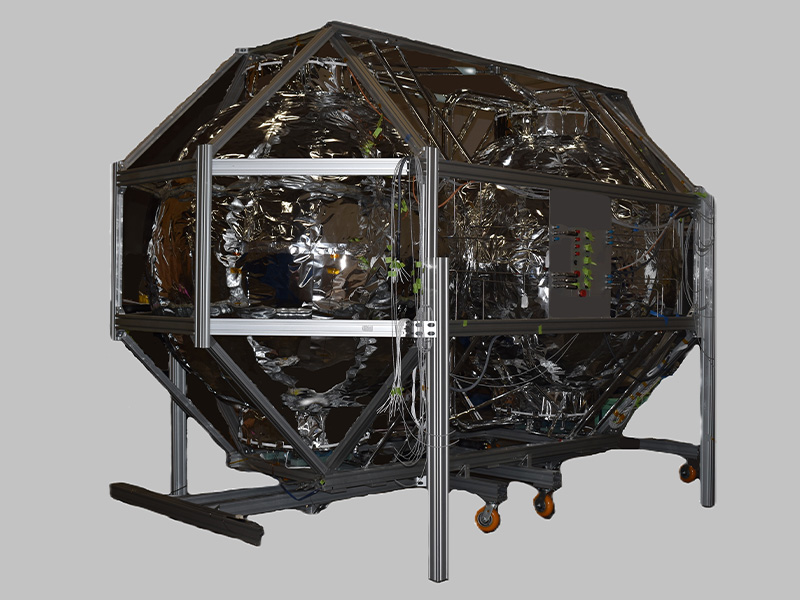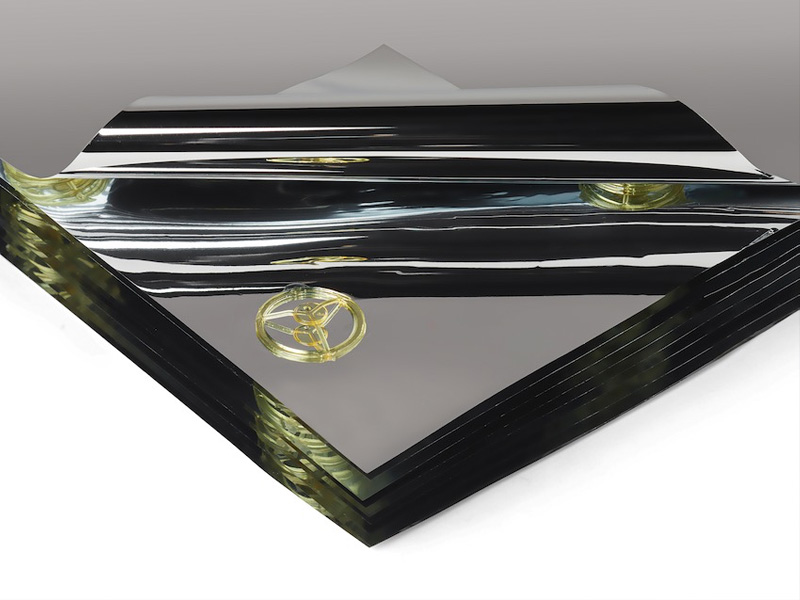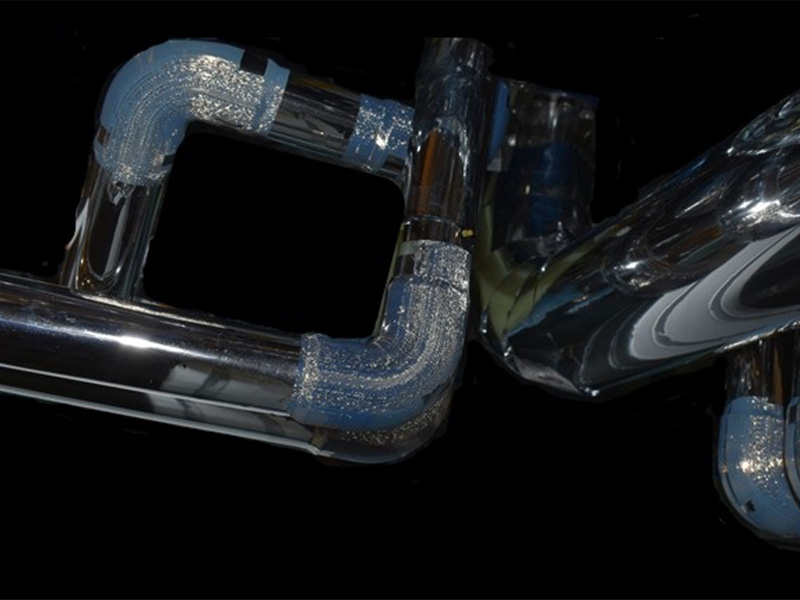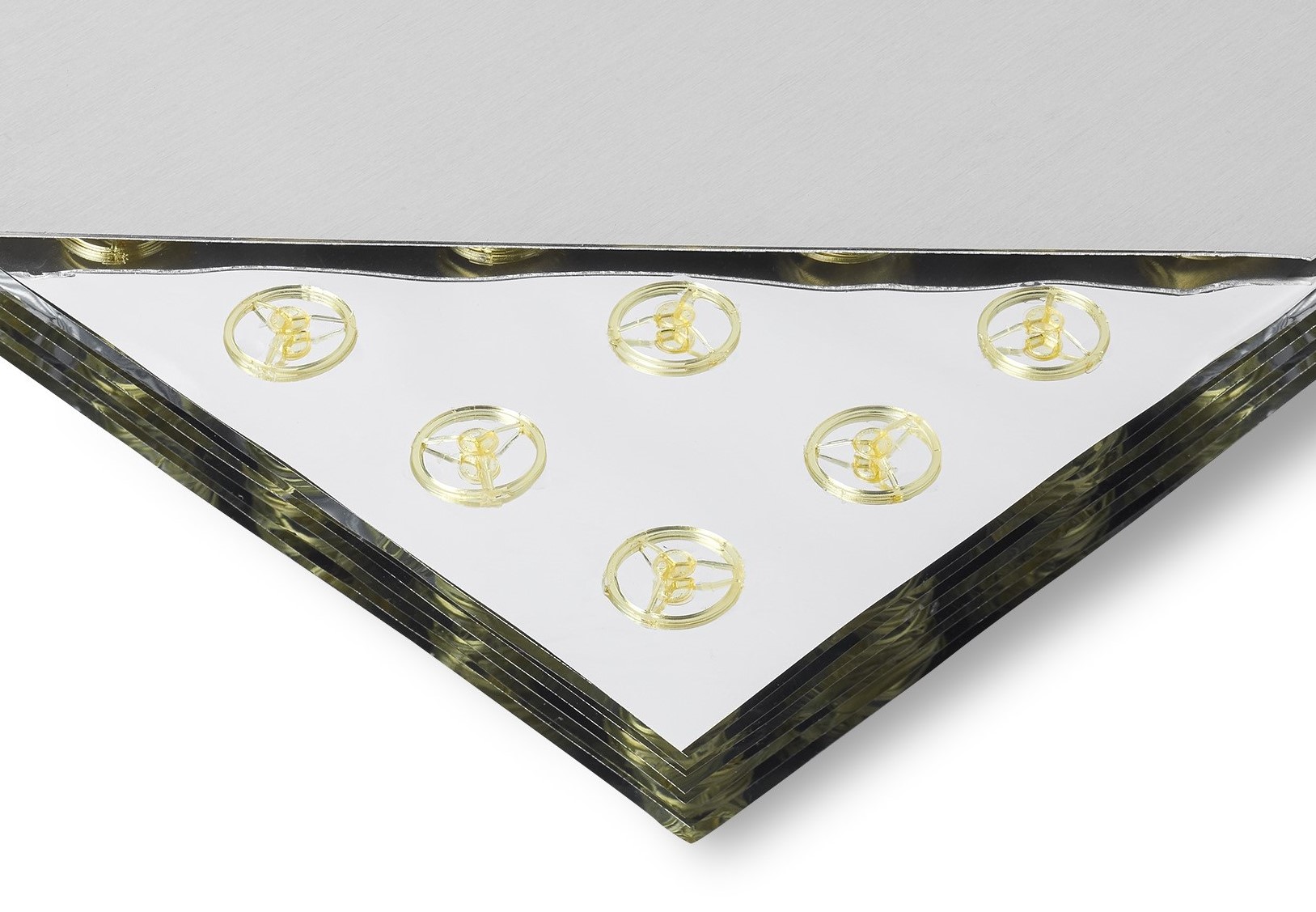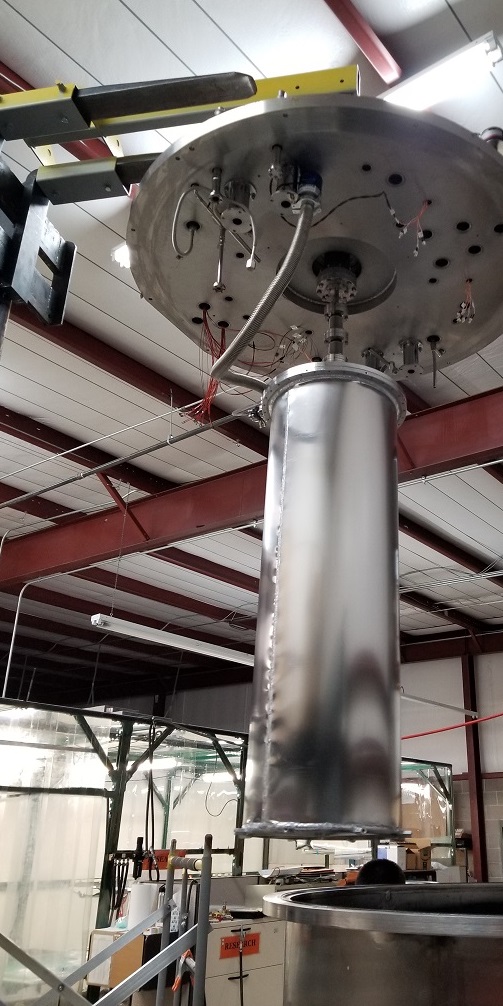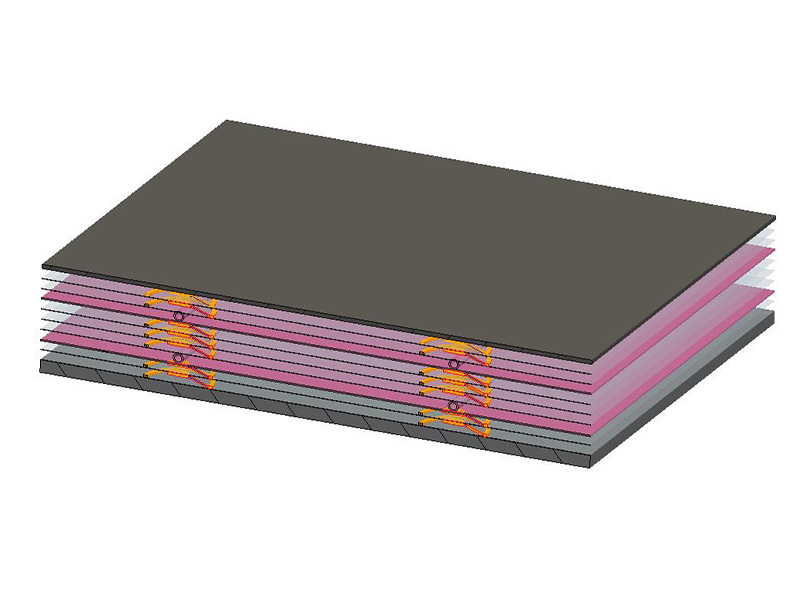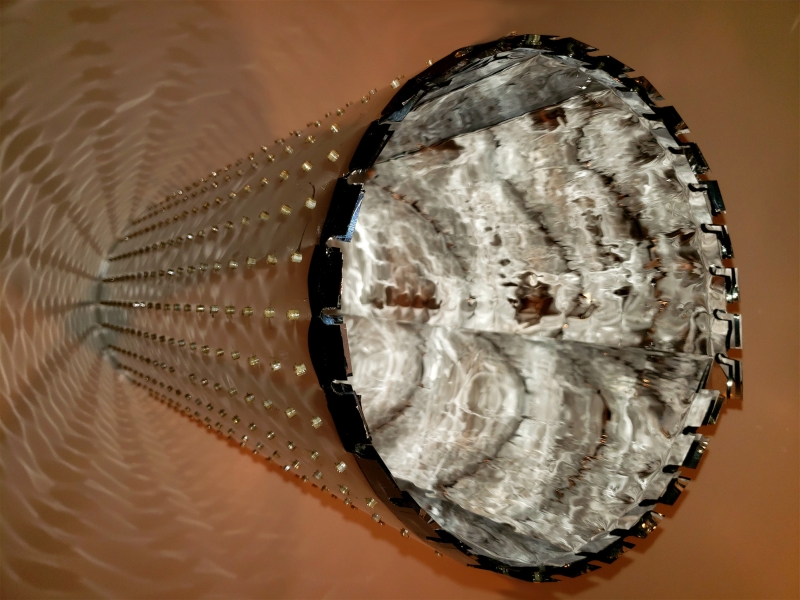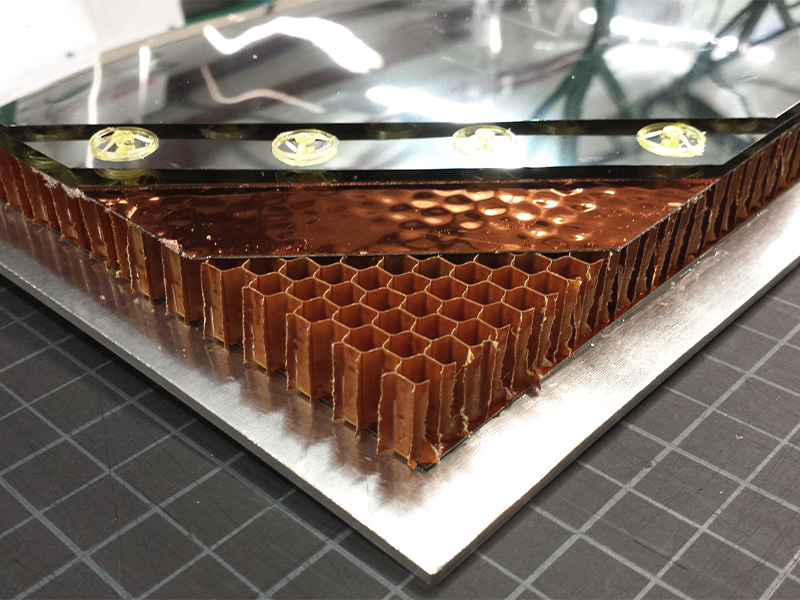Home
Slide
WE ARE THE
WORLD LEADER
IN ADVANCED THERMAL INSULATION SYSTEMS
At Quest Thermal Group, we drive more innovation in the thermal insulation systems space
than anyone else. High performance, highly innovative.
than anyone else. High performance, highly innovative.
An Overview
Who We Are
At Quest
Quest Thermal has successfully developed new technology for NASA and Aerospace Primes since 2006, developing and supplying beyond cutting-edge insulation systems.
Quest Thermal works with you to develop optimal solutions for insulating spacecraft, cryogenic propellant storage and transfer, vapor cooling, load bearing insulation, lightweight vacuum shell insulation, cryofeed line insulation, lunar and Mars ISRU, LH2 storage, cold supply chain and other thermal applications. Quest provides expertise, novel technology and the highest performance thermal solutions for our clients.

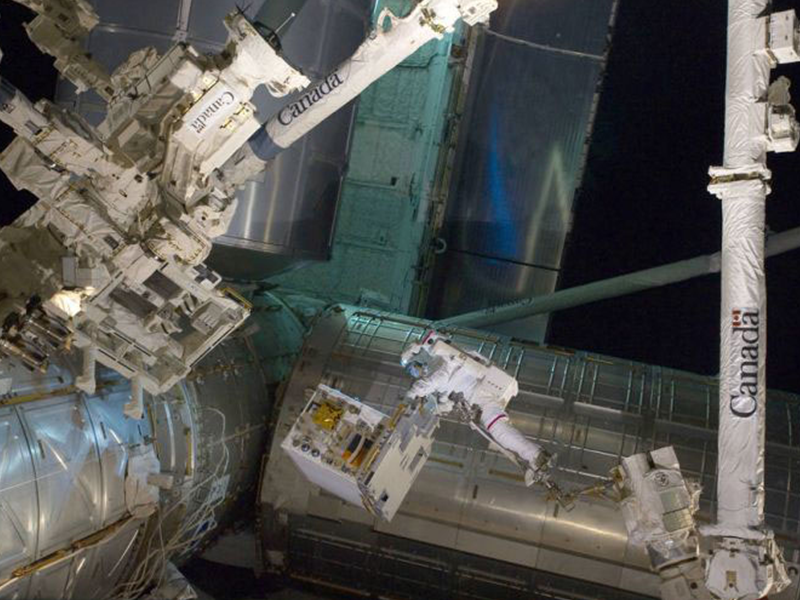
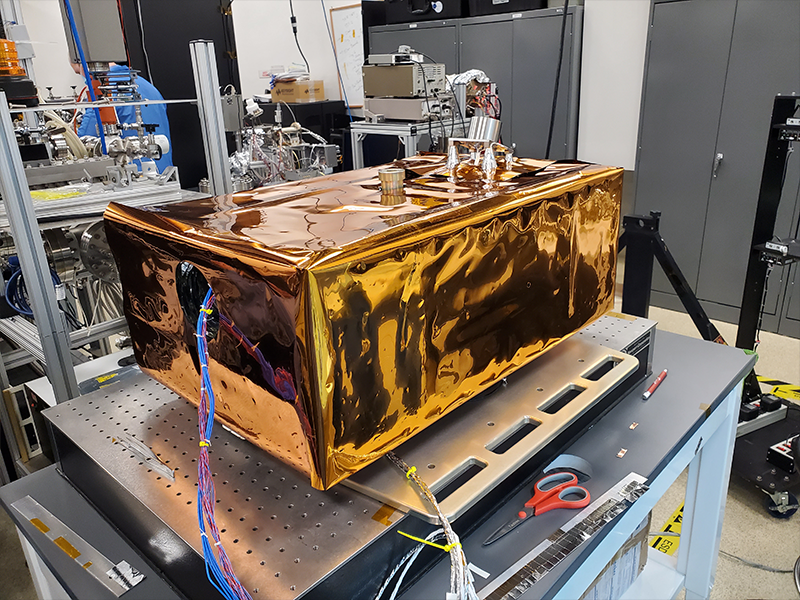
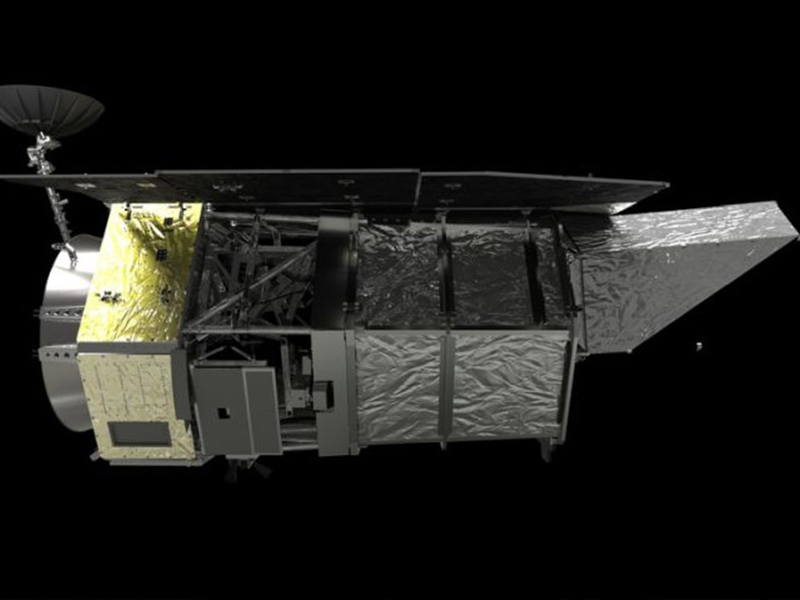
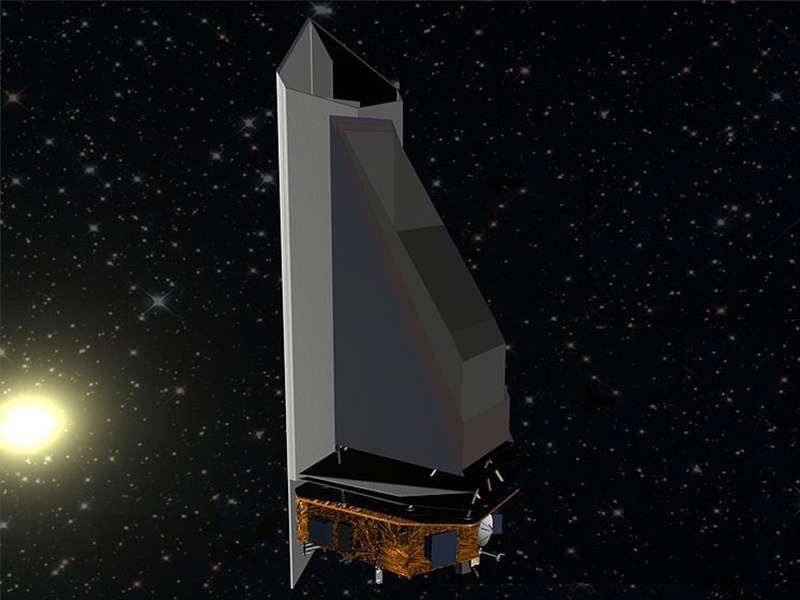
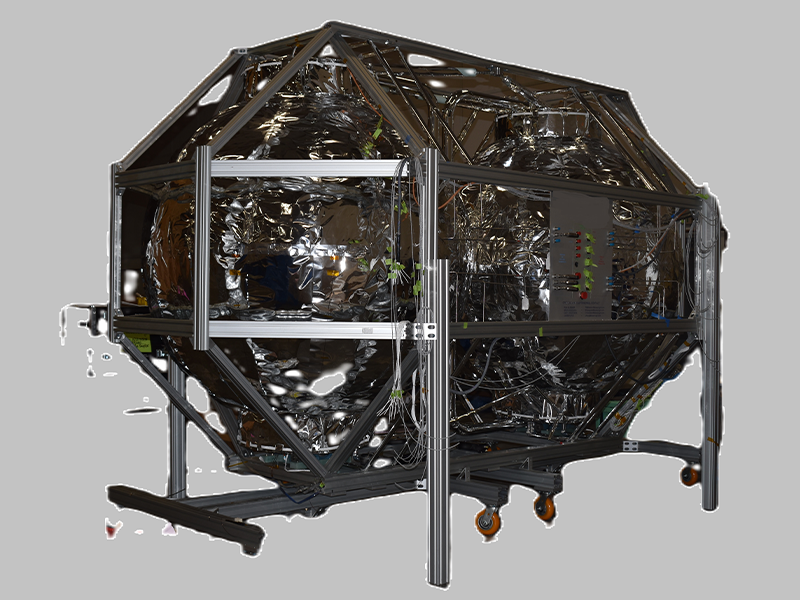
What We Build
Our Products
& Technologies
IMLI
Integrated Multilayer Insulation
IMLI is a high performance insulation developed by Quest Thermal Group for NASA. IMLI uses proprietary Discrete Spacer Technology™ with low thermal conductivity polymer spacers to reduce heat leak, control layer spacing and density, and provide unique structural capabilities.
IMLI offers half the heat leak per layer as netting MLI, robust structure, predictable performance, fewer layers and lower mass then netting MLI, can span large spaces and support external loads.
IMLI offers half the heat leak per layer as netting MLI, robust structure, predictable performance, fewer layers and lower mass then netting MLI, can span large spaces and support external loads.
WMLI
Wrapped MLI uses a unique Discrete Spacer designed for cryogenic transfer applications. WMLI offers a 12-fold improvement in heat leak compared to spiral-wrapped netting MLI. Triple Orthogonal Disc (TOD) spacers provide high performance insulation on tube diameters from ¼” up to 6″. WMLI can use 3D printed Nested Shells to accommodate bends, tees, valves, and other plumbing equipment.
LRMLI
Load Responsive/Load Bearing MLI
Load Responsive/Load Bearing MLI is a structural insulation that can carry compressive loads up to 90 psi. A Discrete Spacer dynamically compresses with load - LRMLI supports vapor cooled shields, thin lightweight vacuum shells and other external loads. The spacer’s dynamic response to external load provides optimal performance both in-air and in-space, and LRMLI/LBMLI can be designed for a specific load and mission requirement.
Vac Shells
Lightweight Vacuum Shell
Insulation Systems
Insulation Systems
Discrete Spacers provide structural support, allowing thin, lightweight vacuum shell insulation. Self-supported and spacer-supported metal or composite vacuum shells for various external pressures have been designed. These systems are ideal for LH₂ storage for aircraft and vehicles, launch vehicles and Mars surface ISRU.
Vapor Cooling
Advanced Vapor Cooled Technology
Quest Thermal has worked on more than 10 R&D programs for NASA and Aerospace Primes developing new vapor cooling methods and insulation systems. IMLI supports embedded Broad Area Cooled shields with our low heat leak discrete spacers, and can provide optimal passive or active vapor cooling. A number of new Quest technologies provide novel, highly efficient vapor cooling methods with low mass.
Integrated vapor cooling within IMLI routinely provides 50% to 70% reduction in heat flux using passive LH₂ boiloff, and helps achieve Zero Boil Off with actively cryocooled systems.
Integrated vapor cooling within IMLI routinely provides 50% to 70% reduction in heat flux using passive LH₂ boiloff, and helps achieve Zero Boil Off with actively cryocooled systems.
Superinsulation
Commercial Superinsulation
Quest Thermal has developed a lower cost discrete spacer insulation for commercial superinsulation applications. Our commercial insulation offers high thermal performance for industrial and residential uses including refrigerators, freezers, cold supply chain, LNG and LH₂ transport. A 5mm thick system offers R-values > 100, significantly better thermal performance than R-7 foam.
Other Techs
Other Quest Technologies
Launch Vehicle MLI
MMOD Insulation Systems
Lightweight LHe Dewars
Highly Variable Spacecraft Radiators
Deployable Sunshields
MMOD Insulation Systems
Lightweight LHe Dewars
Highly Variable Spacecraft Radiators
Deployable Sunshields
High Temperature MLI
Commercial Superinsulation
LH₂ Storage Systems
Superconducting Applications
Commercial Superinsulation
LH₂ Storage Systems
Superconducting Applications
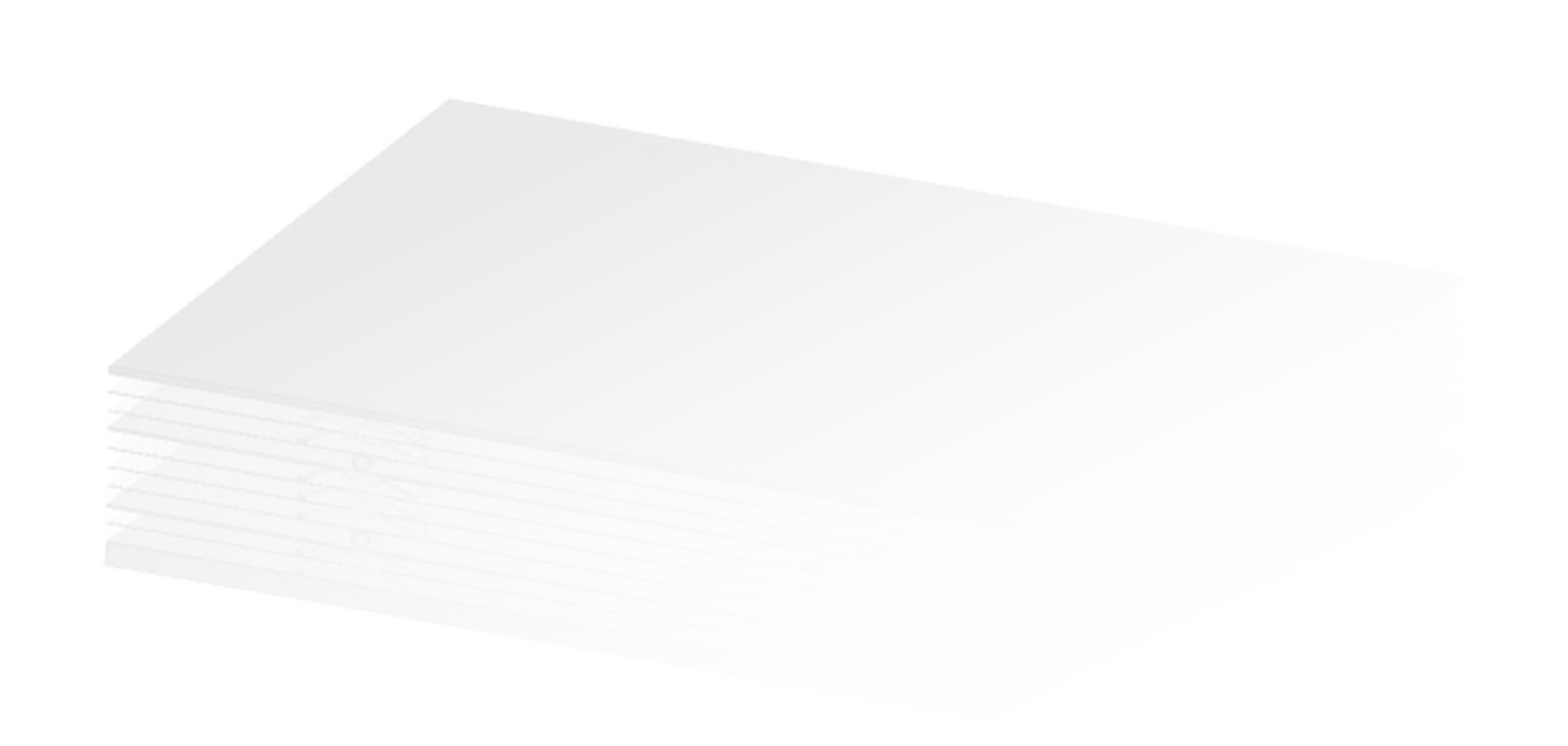

The Latest
NASA Selects First Lunar Instruments for Artemis Astronaut Deployment
NASA Selects First Lunar Instruments for Artemis Astronaut Deployment
March 27, 2024
NASA has chosen the first science instruments designed for astronauts to deploy on the surface of the Moon during Artemis III. Once installed near the lunar South Pole, the three instruments will collect valuable scientific data about the lunar environment, the lunar interior, and how to sustain a long-duration human presence on the Moon.
New Robotic Automation Initiative Will Elevate Manufacturing Capacity and Precision
New Robotic Automation Initiative Will Elevate Manufacturing Capacity and Precision
February 9, 2024
Quest Thermal Group, a world-leader in innovative thermal management solutions, announces the initiation of a robotic automated fabrication effort aimed at revolutionizing its manufacturing processes. This strategic move reflects Quest's commitment to advancing technology, enhancing precision, and ensuring the highest quality standards while meeting the growing manufacturing needs their clients.
Quest Thermal Group Successfully Passes Rigorous Quality Audit Conducted by Blue Origin
Quest Thermal Group Successfully Passes Rigorous Quality Audit Conducted by Blue Origin
January 12, 2024
Quest Thermal Group, a leading provider of cutting-edge thermal management solutions, proudly announces the successful completion of a comprehensive quality audit conducted by Blue Origin, a private aerospace manufacturer and spaceflight services company. This achievement highlights Quest Thermal Group's commitment to excellence and its capability to meet the stringent standards set by industry leaders in the space exploration sector.
Humanity’s Return to the Moon: Quest Joins Forces with Lockheed Martin on Lunar Exploration Transfer Vehicles
Humanity’s Return to the Moon: Quest Joins Forces with Lockheed Martin on Lunar Exploration Transfer Vehicles
January 10, 2024
Quest Thermal, a leading innovator in thermal management solutions, is thrilled to announce a groundbreaking collaboration with Lockheed Martin, a global aerospace and defense company, to pioneer advancements in lunar transfer vehicles. This strategic partnership aims to accelerate the development of state-of-the-art technologies crucial for the future of lunar exploration.
IMLI To Insulate NASA Near Earth Object Surveyor (NEOS) Space Telescope
IMLI To Insulate NASA Near Earth Object Surveyor (NEOS) Space Telescope
December 15, 2023
Quest Thermal's cutting-edge Integrated MultiLayer Insulation (IMLI) has been chosen by Ball Aerospace and NASA to insulate the NASA NEOS infrared space telescope. The Near-Earth Object Surveyor space telescope is designed to help advance NASA’s planetary defense efforts to discover and characterize most of the potentially hazardous asteroids and comets that come within 30 million miles of Earth’s orbit. By detecting and characterizing these celestial bodies, NEOS contributes to planetary defense and scientific research.
Quest Thermal Group Invited to Blue Origin Supplier Summit
Quest Thermal Group Invited to Blue Origin Supplier Summit
December 12, 2023
Quest Thermal Group, a trailblazer in the field of thermal management solutions, is honored to announce its participation in the Blue Origin Supplier Summit. This invitation serves as a recognition of Quest Thermal Group's dedication to excellence, innovation, and its pivotal role in advancing technologies crucial to the aerospace industry.
Humanity’s Return to the Moon: Quest Joins Forces with Lockheed Martin on Self-Deploying Sunshield Technology
Humanity’s Return to the Moon: Quest Joins Forces with Lockheed Martin on Self-Deploying Sunshield Technology
October 10, 2023
Quest Thermal Group, a renowned leader in thermal management solutions, proudly announces its collaboration with Lockheed Martin on a groundbreaking Cryogenic Demonstration Mission. This joint venture brings together Quest Thermal Group's expertise in cutting-edge thermal technologies and Lockheed Martin's prowess in aerospace innovation to advance cryogenic systems for future space exploration.
Quest Showcases New MLI Electrical Grounding Technology & Vapor Cooling Methods at Space Cryogenics Workshop
Quest Showcases New MLI Electrical Grounding Technology & Vapor Cooling Methods at Space Cryogenics Workshop
July 16, 2023
Quest Thermal Group attended the 2023 iteration of the prestigious Space Cryogenics Workshop held in Kona, Hawaii. The company presented two technical papers highlighting advancements in cryogenic thermal technologies. This engagement underscores Quest's continued commitment to pushing the boundaries of innovation and sharing expertise with the global space exploration community.
IMLI Chosen For NASA Cryocooler Test Program To Achieve LH₂ Zero Boil-Off
IMLI Chosen For NASA Cryocooler Test Program To Achieve LH₂ Zero Boil-Off
May 9, 2023
Quest Thermal Group, the world-leader in advanced thermal insulation systems, proudly announces its collaboration with NASA on the groundbreaking LH₂ Two Stage Cryocooled Zero Boil Off test program. This partnership reflects Quest Thermal Group's commitment to advancing cryogenic thermal technologies and contributing to NASA's ambitious goals for space exploration.

